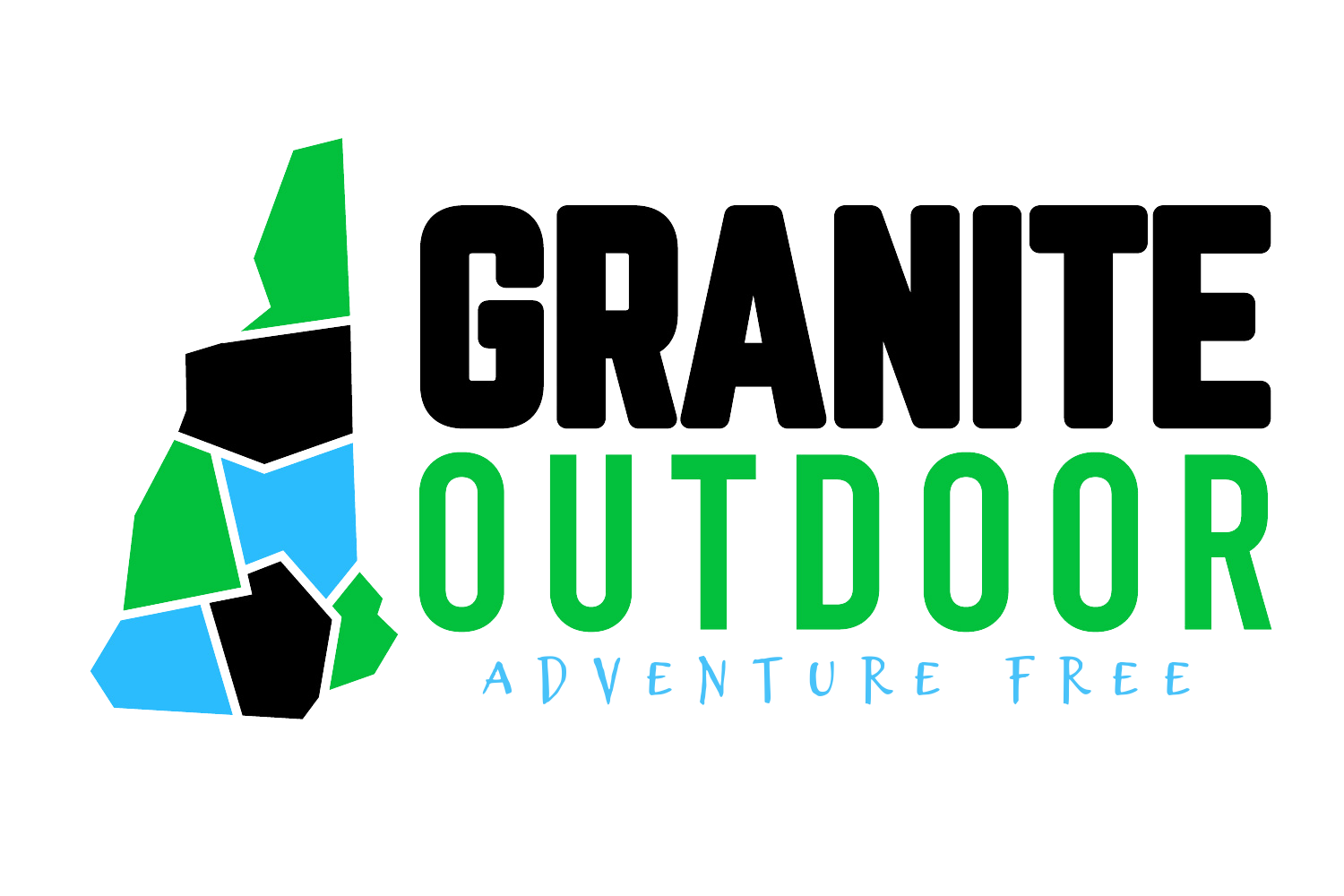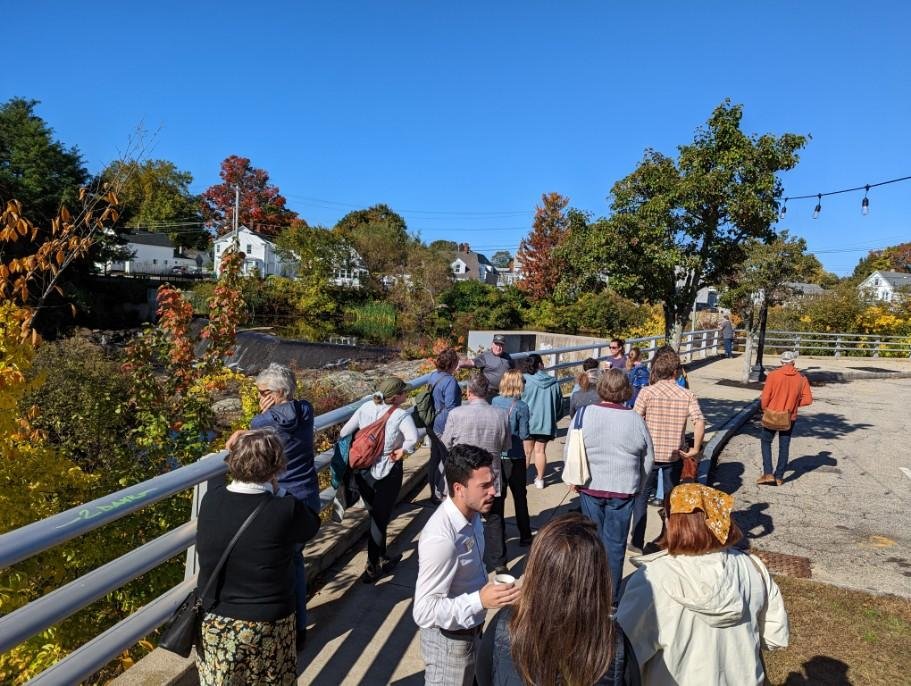Nature Economy Collaborative
By Shannon Rogers, Ph.D
What has nature done for you lately? Did it provide some shade on a warm day? Or maybe it filtered the air or cleaned the water in your community without you even noticing. Perhaps a trail or river for recreation or relaxation was available when you needed a break and wanted to clear your mind.
Riverwalk committee in Rochester leading a walking tour along the Cocheco River, working to better integrate the City and the River for economic development and quality of life.
All of these things and many more are benefits humans receive from nature. We value them as individuals, but they are also highly valuable to communities and economies. New Hampshire is fortunate to have many lands, waters, and forests that support quality of life and sustainable economic development. Many of us know and appreciate the benefits nature provides to us where we live and work. In fact, it may be one of the top reasons you moved here or decided to move back. The pandemic further highlighted these values we have for nature and the outdoors, but also challenged us to think about access to nature, potential impacts of climate change, and how to manage and balance increased interest in usage with the need to maintain our natural capital at levels that will support a high quality of life.
In response, in 2021, a group of us at UNH, along with state and non-profit partners including Granite Outdoor Alliance and GOA members UNH Extension and UNH Recreation Management and Policy, formed the Nature Economy Collaborative. Over 18 months the group worked together to collect information on existing data, funding opportunities, and models for centralizing research efforts that other states are following. An important part of our work was learning from communities who are working to integrate nature and economy while also allowing opportunities for others to learn. To that end, we partnered with the City of Rochester, New Hampshire to discuss and demonstrate access to nature.
The following “by the numbers” summarizes the highlights from our work.
PC: J. Gasowski.
26 Funding opportunities tabulated.
20 New Hampshire specific reports and studies reviewed.
19 Stakeholders interviewed.
17 center models reviewed.
3 info-briefs published.
1 community workshop and walking tour (Rochester) with 1 story map published.
1 project website established and updated.
25 students, volunteers, and professionals trained on access to nature through an interactive panel and walking tour in Rochester, NH—a community that is working to integrate nature into economic and community well-being goals
90 registered and 52 people attended our webinar on Access to Nature and Its Community Economic Implications. The webinar was made publicly available through the UNH Scholars Repository.
This is just the beginning of our efforts. To learn more, stay tuned, and get connected with our resources and future plans, please check out the following links.The Nature Economy Collaborative
Strengthening Economy Through Nature | UNH Extension
Access to Nature and its Economic Implications | UNH Scholars
Shannon Rogers, Ph.D, is the Nature Based Economic Development Specialist and Associate Extension Professor at the University of New Hampshire. She is a Granite Outdoor Alliance Board member. Email: Shannon.Rogers@unh.edu



